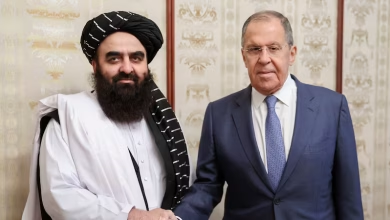
Making Sense of the Trump-Vance Confrontation After Years of War
“The sky felt like it split over Kyiv” when President Zelensky experienced a remarkable public confrontation that changed US-Ukraine relations forever. The world watched as a U.S. president scolded a visiting foreign leader in the Oval Office – something that had never happened before.
President Volodymyr Zelensky came seeking a crucial minerals deal. His country had endured Russian attacks for three years, and the last ten days alone saw 47 civilian deaths. The meeting ended badly. The agreement remained unsigned, and Western leaders rushed to show their support for Ukraine. This intense exchange revealed cracks in US-Ukraine’s relationship and gave Putin an unexpected edge in the conflict.
The Oval Office Confrontation
“You’re gambling with the lives of millions of people, you’re gambling with World War III, and what you’re doing is very disrespectful to this country.” — Donald Trump, President of the United States
The diplomatic meeting between President Trump and President Zelensky turned into an unmatched display of hostility that changed the dynamics of US-Ukraine relations. Trump and Vice President Vance openly criticized the Ukrainian leader as global media watched.
Key moments of the Trump-Zelensky meeting
Things got worse when Trump told Zelensky, “You’re not really in a good position right now.” He threatened to abandon Ukraine if Zelensky didn’t line up with American terms. While they discussed peace talks, Trump highlighted his connection with Putin and their shared experiences during the “Russia hoax” investigation.
Zelensky wore his trademark dark long-sleeved shirt as he tried to relate Russia’s history of aggression. He pointed out Moscow’s territorial goals started back in 2014 with Crimea’s seizure. In spite of that, his attempts to explain the conflict met fierce opposition.
Vance’s role in escalating tensions
Vice President Vance made the confrontation worse. He talked over Ukraine’s leader and called Zelensky “disrespectful” for speaking to American media. On top of that, Zelensky asked if Vance had ever been to Ukraine. The Vice President replied he had “watched and seen the stories”.
The conversation grew heated as Vance just needed gratitude from Zelensky and asked, “Have you said ‘thank you’ once?”. Zelensky said he had shown gratitude “a lot of times, even today,” but the mood stayed tense.
Immediate aftermath
The Trump administration officials gathered and told Zelensky to leave. They canceled the planned joint news conference and the rare minerals deal signing. A grim-faced Zelensky left the White House in a black SUV.
The impact hit fast and hard. Senator Lindsey Graham, who strongly supported Ukraine before, called it a “complete, utter disaster”. More bad news followed as Trump’s team thought about stopping all military aid shipments to Ukraine because of Zelensky’s comments.
This meeting changed US foreign policy and America’s position in the European conflict. Trump showed warmth toward Putin while clearly disliking Zelensky. These dramatic changes happened just six weeks after Trump returned to office, reshaping US-Ukraine relations completely.
Zelensky’s Strategic Response
President Zelensky showed remarkable diplomatic skill through his measured responses after a tense Oval Office meeting. His choice to seek reconciliation rather than conflict highlighted his political wisdom.
Public statements after the meeting
Zelensky managed to keep his composure as he left the White House. He handled questions about potential apologies with diplomatic precision. His response to Fox News focused on gratitude: “I’m very thankful to Americans for all your support. You did a lot”. His words balanced appreciation for past help while looking ahead.
Diplomatic messaging through social media
Social media became Zelensky’s powerful tool to handle the aftermath. He crafted a thoughtful message on his official platforms: “Thank you America, thank you for your support, thank you for this visit. Thank you @POTUS, Congress, and the American people”. This message reinforced Ukraine’s gratitude while preserving its dignity.
Global leaders rallied behind the Ukrainian leader on social media with messages of solidarity. Zelensky personally responded to each supportive message with a simple yet powerful: “Thank you for your support”.
His digital outreach triggered widespread international support, including:
- Canadian Prime Minister Justin Trudeau’s affirmation of Ukraine’s “courage and resilience”
- European Commission President Ursula von der Leyen’s praise of Ukrainian dignity
- Multiple European leaders’ steadfast dedication
Zelensky’s Telegram message highlighted his diplomatic efforts’ broader meaning: “It is important for people in Ukraine to know that they are not alone, that their interests are represented in every country, in every corner of the world”. His approach turned a challenging confrontation into a chance to display global unity behind Ukraine.
These carefully adjusted responses helped Zelensky protect Ukraine’s diplomatic position. He gained renewed international backing and effectively countered any negative impact from the earlier confrontation.
Global Reaction and Support
European leaders were quick to show unprecedented solidarity after the contentious White House meeting. Leaders across the continent voiced their steadfast dedication to Ukraine’s sovereignty within hours.
European leaders’ statements
French President Emmanuel Macron struck a resolute tone and declared Russia the clear aggressor. German Chancellor Olaf Scholz confirmed that “nobody wants peace more than the Ukrainians”. Italy’s Prime Minister Giorgia Meloni suggested an immediate summit between the United States and European nations to deal with the growing rift.
European Union foreign policy chief Kaja Kallas made a bold statement that signaled a radical alteration in global power dynamics. “Today, it became clear that the free world needs a new leader. It’s up to us, Europeans, to take this challenge”.
NATO allies’ position
The alliance showed remarkable unity. All but one of the leaders from Belgium, Croatia, the Czech Republic, Estonia, Finland, Ireland, Latvia, Lithuania, Luxembourg, the Netherlands, Portugal, Slovenia, Spain, and Sweden expressed firm support for Ukraine.
Hungarian Prime Minister Viktor Orban was the lone NATO member who backed Trump’s position. “Strong men make peace, weak men make war,” Orban posted and praised Trump for standing “bravely for peace”.
Russian response
The Kremlin’s reaction showed satisfaction with the diplomatic breakdown. Russian officials and state media capitalized on the confrontation. Former president Dmitry Medvedev called it “a proper slap down in the Oval Office”. Russian Foreign Ministry spokeswoman Maria Zakharova mocked the encounter and suggested it was “a miracle of restraint” that physical confrontation had been avoided.
Kirill Dmitriev, head of the Russian Direct Investment Fund, called the exchange “historic”. Russian state media amplified the discord, with RT highlighting Zelensky’s perceived humiliation.
European solidarity stood in stark contrast to Russian satisfaction and highlighted the meeting’s broader geopolitical implications. European leaders considered increased independence from U.S. leadership, while Moscow’s response indicated the Kremlin saw the confrontation as validation of its long-term strategic goals.
Impact on US-Ukraine Partnership
“You’re not acting at all thankful. And that’s not a nice thing. I’ll be honest, that’s not a nice thing. All right, I think we’ve seen enough. What do you think? This is going to be great television, I will say that.” — Donald Trump, President of the United States
Trump and Zelensky’s dramatic confrontation has cast a long shadow over future US military support for Ukraine. US stockpiles currently hold AED 14.14 billion in drawdown authority for weaponry. Policy review covers an additional AED 5.51 billion in Foreign Military Financing.
Military aid implications
Critical defense assistance faces immediate threats. Weapons shipments have continued since January, yet no new packages have been announced. Congress approved AED 642.59 billion in assistance after Putin’s invasion. The last measure passed under Democratic Senate control in April.
Future diplomatic relations
The minerals deal, meant to be the life-blood of stronger economic ties, remains unsigned after Zelensky’s sudden departure. Senator Lindsey Graham, previously a strong Ukraine supporter, demanded Zelensky’s resignation unless he changes direction. Some Republican voices still stand firm – Representative Don Bacon stressed that “Ukraine wants independence, free markets and rule of law”.
Security cooperation outlook
Security cooperation faces growing complexity. European nations have shown readiness to step up – France and the United Kingdom are willing to deploy troops to support a peace accord. Norwegian Prime Minister Jonas Gahr Store called Trump’s rhetoric “serious and disheartening”. His statement highlights Europe’s determination to address potential gaps in Ukraine’s security framework.
Stakes remain at their peak. Dutch Prime Minister Dick Schoof stated firmly, “The Netherlands continues to support Ukraine… We want lasting peace and an end to the war of aggression that Russia has started”. Estonian Foreign Minister Margus Tsahkna delivered a stark warning: “If Russia stops fighting, there will be no war. If Ukraine stops fighting, there will be no Ukraine”.
US-Ukraine relations stand at a crucial turning point. Representative Michael McCaul sees hope for “a real and lasting peace that ensures Ukraine would be free from further Russian aggression”. Ukraine faces mounting challenges against continued Russian pressure without renewed American support.
The face-off between Trump and Zelensky stands as a pivotal moment that has changed US-Ukraine relations. European leaders showed strong unity by quickly backing Ukraine, yet America’s military support remains unclear.
Zelensky handled the challenging meeting with remarkable skill and turned what could have been a damaging situation into a chance for stronger international support. Russia’s positive reaction to this diplomatic tension points to possible changes in global power that could alter Eastern Europe’s security setup.
Military aid worth AED 14.14 billion now depends on ongoing Congressional discussions. European nations are ready to do more, but American support is vital for Ukraine’s defense capabilities. This key diplomatic moment tests US-Ukraine’s partnership strength and shows Europe’s growing role in keeping the region stable.






